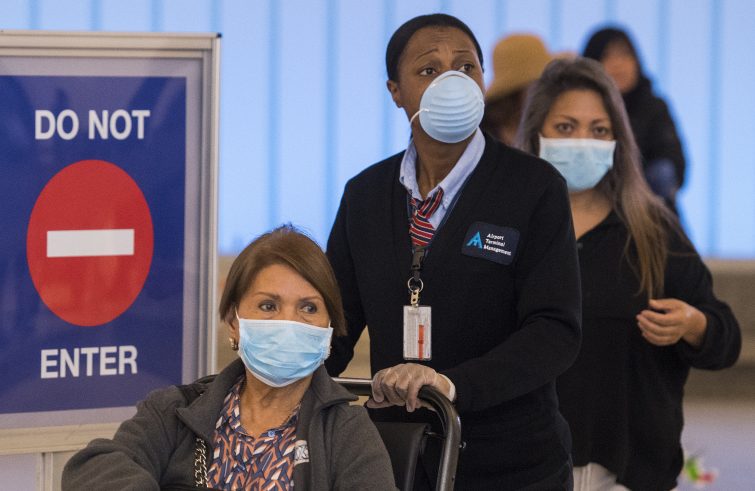
(from New York) “For safety purposes, we invite you not to exchange signs of peace and to receive the Eucharist on your hands only. No wine will be distributed during the celebration, nor will you find holy water in the stoup. We comply with the requirements of the Health Department to protect one another and to avoid further contamination.” Father George opened Mass service with this short announcement a week ago. Then, as though to comfort the few faithful shocked and alarmed by the Coronavirus epidemic, he asked them to step closer to the altar and at the moment of the sign of peace, he clasped his hands together and bowed gently in front of each. This also occurs in a parish in Lincoln Center, in chapels on university campuses, in churches in Manhattan and Brooklyn, but also in mosques and synagogues.
Coronavirus fears reverberated throughout the country, including places of worship.
Religious leaders, in the knowledge of outbreaks in at least 15 States, have taken measures to counter the spread of the disease and called on community members to change certain family practices, such as, for example, not holding hands with the person near them during the recitation of prayers.
“In synagogues it is recommended not to hug and kiss friends on the cheeks and not to shake hands.“ We are now recommending an ”elbow touch” as the most appropriate way to offer a warm welcome,” according to the provision of Temple De Hirsch Sinai synagogue in Seattle in response to the Coronavirus emergency.
In some Catholic churches an altar server sprays disinfectant on the hands of the faithful while queuing for communion. “If you are sick, stay home until you feel better,” the bishop of Pittsburgh recommended in a message to parishioners on March 2. In some dioceses, extraordinary ministers of Holy Communion who feel uncomfortable carrying out their ministry may also resign temporarily. In the meantime, the guidelines of the Department of Health are being published on the websites of parishes, while at the national level sanitation guidelines are released to protect oneself and others. University campuses are considering suspending all study-abroad programs and sending students back home. In any case, students or professors who have travelled to high-risk countries are required to stay home for two weeks when they return. In New York City, 2773 people are in self-isolation because of travel to high-risk countries and are monitored by the local health agency. At present 22 people have tested positive for the disease in New York city.
Religious leaders in the USA are doing their best to ensure that the faithful are protected from infection, but no places of worship have been closed, nor has attendance decreased, not least because praying in groups, small or medium, is typical of many evangelical churches on weekdays and this is certainly a comfort in a time of disorientation. Meanwhile, two pastors of Life Church, a community present in ten states, have been quarantined by local health authorities after being exposed to the coronavirus at a leadership training conference in Germany.
Catholic Relief Services, the U.S. bishops’ international relief and development agency is working “to prevent and mitigate the spread of the deadly virus” while protecting the safety of its staff, at national level and in more than 110 countries where its activities are carried out. All travel has been restricted and many education campaigns have been transformed into health education lessons on the use of soaps and face masks to prevent or limit the spread of the virus.
The epidemic is exposing the weaknesses of the American health care system where 27 million people are living without health insurance or have access to health plans with exorbitant costs for medical visits. Many prefer to ignore the symptoms not only on account of costs, but because quarantined workers don’t receive sick pay and those with a two-week paycheck would be unable to pay rent and would lose their homes.
Meanwhile, the House passed an $8.3 billion bipartisan emergency package for federal agencies and state governments working to contain the spread and develop a vaccine in response to the emergency.









